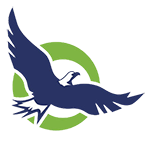Read the detailed description of Quest's Program Details!
This month seemed like a good time to focus on breathing. I got the idea for this month’s topic after I read an article about a recent viral social media post regarding how 96% of jet pilots were found to be able to fall asleep in 2 minutes after practicing a specific deep breathing and mindfulness technique that they were taught. Please see footnote link for this specific technique. [1]
Deep breathing has been found to have positive effects on mood, sleep, concentration and focus, memory, and physical health. As a psychologist, deep breathing is often the technique I typically teach within the first few sessions of seeing a new client in the office since so many people notice a positive difference quickly when they start employing deep breathing. At Quest Camp, we also have a weekly relaxation group in which we engage in deep breathing, progressive relaxation (a systematic tightening and releasing of muscles) and imagery exercise since I have found this to be so helpful for our kids. The other cool thing I have seen over the years is that whereas sometimes our kids are more resistant to trying these techniques in an individual or family therapy session or throughout the week without a nice bonus, they have been more invested in engaging in these activities with their peers after they hear the positive reactions from others in the group as we continue to practice these strategies over the course of the summer.
A team of researchers at Yale found that “SKY Breath Meditation, which is a comprehensive series of breathing and meditation exercises learned over several days that is designed to induce calm and resilience…showed the greatest mental health, social connectedness, positive emotions, stress levels, depression, and mindfulness benefits” when compared with mindfulness-based stress reduction and teaching foundations of emotional intelligence. These authors also discuss research that demonstrates that we breathe differently based on how we feel–with more shallow, irregular short breaths when we are under stress as opposed to deep, slow regular breaths when we feel joy. [2] To learn the SKY Method for Breathing there are videos online and training workshops available.
In addition, for any of you who would like some really detailed information regarding the research for sleep, Dr. Huberman, as part of the Huberman Lab podcast, interviewed Dr. Jack Feldman, a Neurobiologist from UCLA. This podcast provides detailed information regarding different types of breathing such as box-breathing, cyclic hyperventilation (similar to Wim Hof breathing), nasal versus mouth breathing, and unilateral breathing, as well as the impact of these types of breathing on the brain and body. [3]
I hope that this newsletter will get you thinking about the importance of breathing in many physical and mental health outcomes. These links are provided so that you can read (or listen) more to strategies that have been found to have significant positive effects when implemented.
[1] Ackerman, S., How to fall asleep in 120 seconds, July 13, 2018, Medium, https://medium.com/s/story/combat-tested-training-unwind-and-sleep-anywhere-in-120-seconds-27d5307b7606
[2] Seppälä, E., Bradley, C, and Goldstein, M. R., Research: why breathing is so effective at reducing stress. September 29, 2020, Harvard Business Review, https://hbr.org/2020/09/research-why-breathing-is-so-effective-at-reducing-stress
[3] Dr. Jack Feldman: Breathing for Mental and Physical Health and Performance, Huberman Lab, January 10, 2022, https://hubermanlab.com/dr-jack-feldman-breathing-for-mental-physical-health-and-performance/

